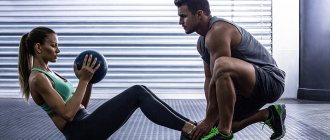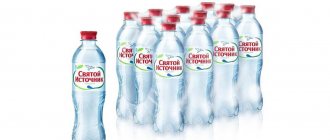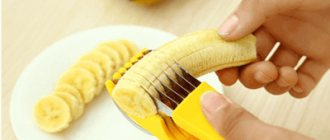Is it possible or not?
After training, you need to quench your thirst, especially if you sweat a lot .
Some people are pleased to notice weight loss during exercise and are afraid to nullify all their efforts by quenching their thirst.
However, post-workout weight loss is mostly just dehydration, not fat loss.
Some trainers do not recommend drinking water after physical activity, due to the fear of severe stress on the heart, as well as the risk of developing a lack of sodium in the blood, especially in hot weather or in a stuffy room.
These tips relate more to the area of professional sports, where professionals can lose several liters of sweat during 4-6 hour workouts.
We recommend an article on the topic
Advice from coaches and instructors on whether you can drink water during training
How much water to drink after training
It is necessary to drink water after training according to a certain pattern. You should not immediately pour a liter into yourself, this can also confuse your body and all the incoming water will not be completely absorbed, and this is a burden on your kidneys, which should not be allowed under any circumstances. Firstly, the water must be at room temperature, and in no case cold, otherwise you will get a cold. Remember, you can only drink water at room temperature after training. Secondly, divide your water intake after exercise into several servings, the first volume should not exceed 250 ml. and you need to take it after your breathing and pulse have calmed down, usually up to 10 minutes. The following water intakes should be carried out in the same portions and time intervals. And the difference in weight before and after exercise will tell you how much water to drink after training. This recommendation is largely conditional, since each person is individual, and their needs for water are individual, and the quality and intensity of training is also of great importance.
Why should you drink after exercise?
Drinking after training is necessary to restore the composition of the blood , which is approximately 50% water. A decrease in this ratio leads to a decrease in blood volume and disruption of its functions.
In a calm, sedentary state, thirst warns of the need to restore the balance of water in the body. For people who regularly sweat at the gym, this signal is less accurate.
The feeling of thirst is born in a special part of the brain - the hypothalamus, as a response to changes in the blood.
During training, a person becomes aware of thirst when he is already 1–2% dehydrated. This reduces activity during exercise and increases the body's recovery time.
Having reached 4-5%, dehydration causes weakness and apathy , inhibition of all body functions.
Most people only replace 50% of their water loss during physical activity, which is aggravated by the release of sodium, potassium, calcium, and magnesium through sweat.
Attention! After training, it is necessary to restore the water-salt balance without waiting for the feeling of thirst to appear.
Can you drink water while exercising?
Some fitness enthusiasts choose to refrain from drinking water during workouts, believing that this will help them lose weight faster. In addition, they “mercilessly” test their body’s resistance to dehydration even in their free time from fitness. For example, for a greater “effect” of fat burning, they often visit baths, saunas and consume various diuretics. The result, of course, is - 1-2 kilograms are lost along with water and sweat. But is this method effective and, most importantly, safe?
Refusal of water during training, frequent visits to the steam room or abuse of dehydrating drinks does not lead to the cherished goal of losing extra pounds, but to disruption of the functioning of various body systems. During intense exercise, our body loses a huge amount of moisture, as a result of which the blood thickens, the blood flow slows down, and the nutrition of tissues and cells deteriorates. The result is shortness of breath, blood clots, weakness, dizziness, etc.
- 180 180
More details - 171 171
More details
- 1224 1163
More details
- 630 630
More details
If you do not replenish the loss of water in the body, you can expect serious diseases in the future:
- Premature aging, dullness and dryness of the skin, the appearance of wrinkles.
- Low body tone, stress.
- Forgetfulness and the development of atherosclerosis.
- Decreased immunity.
- Problems with the gastrointestinal tract - constipation, diarrhea.
- Chronic joint pain.
Think about it, is losing weight worth such risks? Despite the fact that the lost kilograms with water during fitness will quickly return. This is clearly not the best option, and certainly not the safest.
There are other ways to fight excess weight, much more effective:
- Reduce the consumption of salt and alcoholic products - they block the removal of fluid from the body.
- Eat less sweets and sugar - foods provoke thirst.
- Include potassium-rich foods in your daily diet. They remove fluid.
Also remember this fact - dehydration directly contributes to the development of obesity. If a person limits himself in water consumption, then over time the body will begin to confuse thirst with hunger. As a result, a person will only eat more when he should have just drunk a glass of water.
Why not?
Some sports and fitness trainers are of the opinion that you should not drink immediately after training and for an hour afterwards.
They explain this by the fact that people are able to drink at a faster rate than the excretory system works - at rest, the maximum ability of the kidneys to excrete urine is about 1 liter per hour, and during exercise this value naturally decreases by half.
Thus, the body replenishes fluid loss too quickly, which puts stress on the heart . Losing sodium through sweat makes the situation worse, especially during endurance exercise.
With a strong decrease in the concentration of this element in the blood, headache and nausea occur, and later disorientation, confusion, and convulsions may appear.
Important! In fact, cases of dehydration are much more common than low sodium in the blood or heart problems due to drinking water. Such situations happen among professional athletes, but during regular hour-long workouts in the gym, it is more important to restore the amount of water in the body.
A little about physiology
Quite active physical activity requires careful attention to your own body. Is it possible to drink water immediately after training if we are talking about weight loss or weight gain? In fact, for an organism there is no particular difference in what specific goals its owner pursues. Intense loss of fluid without its replacement only leads to moisture retention in the tissues. The body simply holds the remaining resources “in reserve.” The result of such a careful attitude towards wasting moisture is the development of edema.
How do you know how long before you can drink water after a workout? After assessing the condition of the body, it will be necessary to ingest one glass of clean liquid - artesian or simply well-purified - upon completion of intense physical activity. The drink should be taken without haste, then, within an hour, you will need to replenish the remaining expended volumes of moisture. In this case, the body will be able to continue to actively develop the metabolic processes that began during exercise, which means that excess fat deposits will be burned quite efficiently.
After how long is it allowed?
It is necessary to compensate for 50-70% of water losses within the first two hours.
To do this, drink about 0.2 liters of water every 15-20 minutes. In the next four hours you need to make up the rest.
In case of heavy sweating, it is recommended to divide the portion of water into several doses, which helps to avoid unnecessary stress on the cardiovascular system and kidneys.
Why you shouldn't drink water after training
Many athletes have a question about why they shouldn’t drink during training if the body is in dire need of moisture. When the body experiences a strong need for fluid, water begins to be intensively absorbed into the blood. This leads to a sharp increase in fluid concentration in the body. As a result of this phenomenon, the load on the cardiovascular system greatly increases.
Even one glass of water is enough to put stress on the kidneys and stomach. As a result, the athlete’s general well-being deteriorates. It will be more difficult to recover from a workout if you constantly drink water during exercise.
In modern medicine, there have been several cases where, after long distances, athletes immediately drank up to 3 liters of water due to extreme thirst. As a result, everything ended for them with a sharp deterioration in their health and hospitalization with a diagnosis of renal failure.
It is especially dangerous to drink cold water after training. Since the stomach is located close to the heart, cold liquid can cause a sharp constriction of blood vessels due to temperature changes. In such a situation, there is a risk of developing cardiovascular diseases. Cold water also weakens the immune system.
You may be interested in: What is the best thing to drink after a workout?
Recommendations for quantity and composition
The main and only requirement for drinking water is purity and microbiological safety. Water from taps, as well as springs and wells, does not always meet the necessary requirements and often contains harmful bacteria and impurities. You can use bottled or filtered water.
Water temperature matters:
- hot - increases sweating and water loss;
- cold - keeps the body from overheating, but can cause vasospasm.
Both options are poorly suited for quenching thirst, since water is not absorbed in the stomach until it reaches a temperature of about 36-37 °C. The best option is lukewarm or room temperature water.
The thirst that appears during and after training cannot be relied upon. The best advisor is the numbers on the scales , from which you can calculate the amount of water needed to restore the body.
Reference! Conclusions about the degree of dehydration can also be made by observing the volume, color and smell of urine - a small volume of dark yellow color with a strong odor signals the need to restore the water-salt balance of the body.
Most people lose between 500 and 1,500 ml of sweat per hour of vigorous exercise, while during vigorous aerobic exercise the loss can be up to 4 liters.
To recover after physical activity, you need to drink 1.5 liters for every kilogram of body weight lost - 1 liter to compensate for sweating, the rest - based on water lost in urine.
Water after training – opinions, facts, reality
We have already told you about how, how much and what kind of water you should drink during training, now let’s talk about how much water we need after sports. And in this case, too, opinions are divided, some believe that it is necessary to drink water after training, others, on the contrary, say that you need to wait a certain time and only then drink water. Those who believe that water is needed after training motivate this by the fact that in order to build muscle mass, water is one of the necessary components, others, those who say that you should not drink water immediately after training are adherents of losing weight, and motivate this the fact that immediately after exercise a person’s weight decreases and to consolidate success there is no need to immediately make up for it. Both opinions are not supported by scientific or medical research. Therefore, answering the question whether you can drink water after a workout or not, let’s turn to the main expert, our body. If you measure your weight before and after training, then depending on the duration and intensity of the workout, you will see a loss of half to two kilograms. This loss is associated precisely with the release of fluid during training, and along with water many other elements, both beneficial and harmful, are released. So, this loss must be replenished, otherwise there will be a reverse reaction, our body is a very smart creation of nature, and when it feels a lack of water, it will turn on mechanisms that retain what it has, and as a result, swelling, and minimizing the effect of playing sports. Therefore, under no circumstances argue with your body if it requires water - give it to it!
Supplements
You can add lemon, honey, mint, berry or fruit juice to the water. In this case, it acquires some of the properties of sports drinks - it is enriched with electrolytes, carbohydrates and vitamins, which helps the body recover faster after training:
honey contains about 300 vitamins and minerals, as well as carbohydrates, which helps to quickly recover after physical activity;- berries and fruits make the drink tasty, contain useful substances, and also contribute to the rapid absorption of water in the stomach;
- mint has a positive effect on metabolism and helps relieve nervous tension;
- cucumber juice reduces appetite and is an excellent source of potassium;
- Rosehip contains a large amount of vitamins and minerals and has an anti-inflammatory effect.
Other drinks
Water is the most readily available and cheapest way to replace water losses, but during vigorous exercise or activities in a hot room, drinks containing carbohydrates, vitamins and electrolytes will be more effective:
- Flavored and fortified drinks. They are lightly flavored water with a small amount of calories. Help restore water balance, stimulating thirst.
- Sports drinks . Effective for those who want to get the most out of every workout. The carbohydrates in a sports drink are used to provide energy to working muscles, while the electrolytes (sodium, calcium and magnesium) restore blood composition and help the body retain more water.
- Energetic drinks. Some sports drinks contain metabolic and exercise stimulants. Most often it is caffeine and taurine, but there may also be more exotic additives - ginkgo biloba, ginseng, guarana. Although they help extend the duration of active training, they should be used with caution, as energy drinks increase blood pressure, force the heart to work to the limit and increase water loss.
- Protein drinks. Various types of protein shakes and regular milk are designed primarily to stimulate muscle protein synthesis; they also contain electrolytes. These drinks are aimed at increasing muscle mass, but are also acceptable as restorers of water-salt balance.











